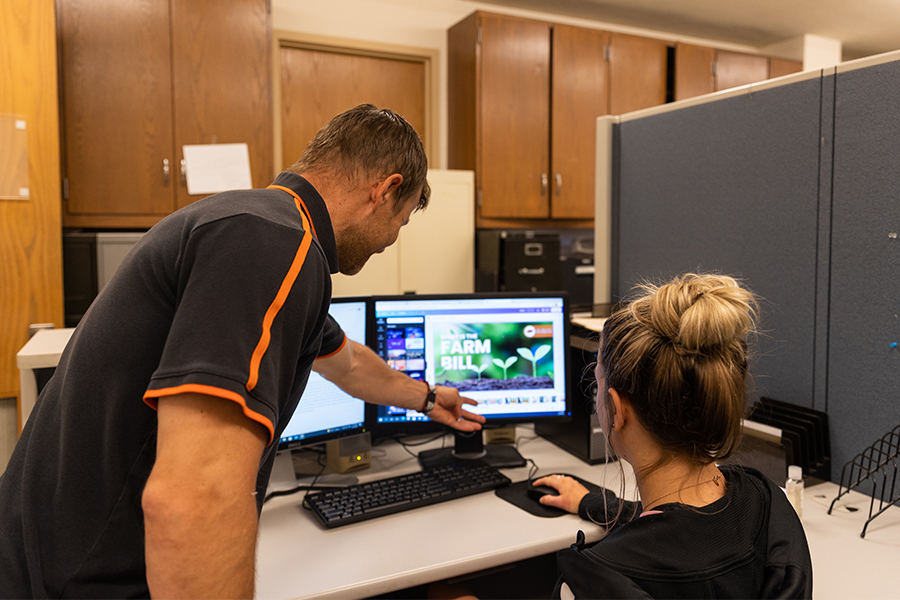Agricultural Economics

What is agricultural economics?
As an agricultural economics major, you will learn to put the economic theory of resource
allocation for the production of food, fiber and other products into action by developing
management, problem-solving and financial strategies.
Why agricultural economics at OSU?
Studying agricultural economics will help you develop the business and economics skills
to be a leader in agriculture or other related industries. You'll learn how to analyze
the big-picture issues related to agricultural, food or natural resource policies;
rural or community development; or environmental and natural resource economics.